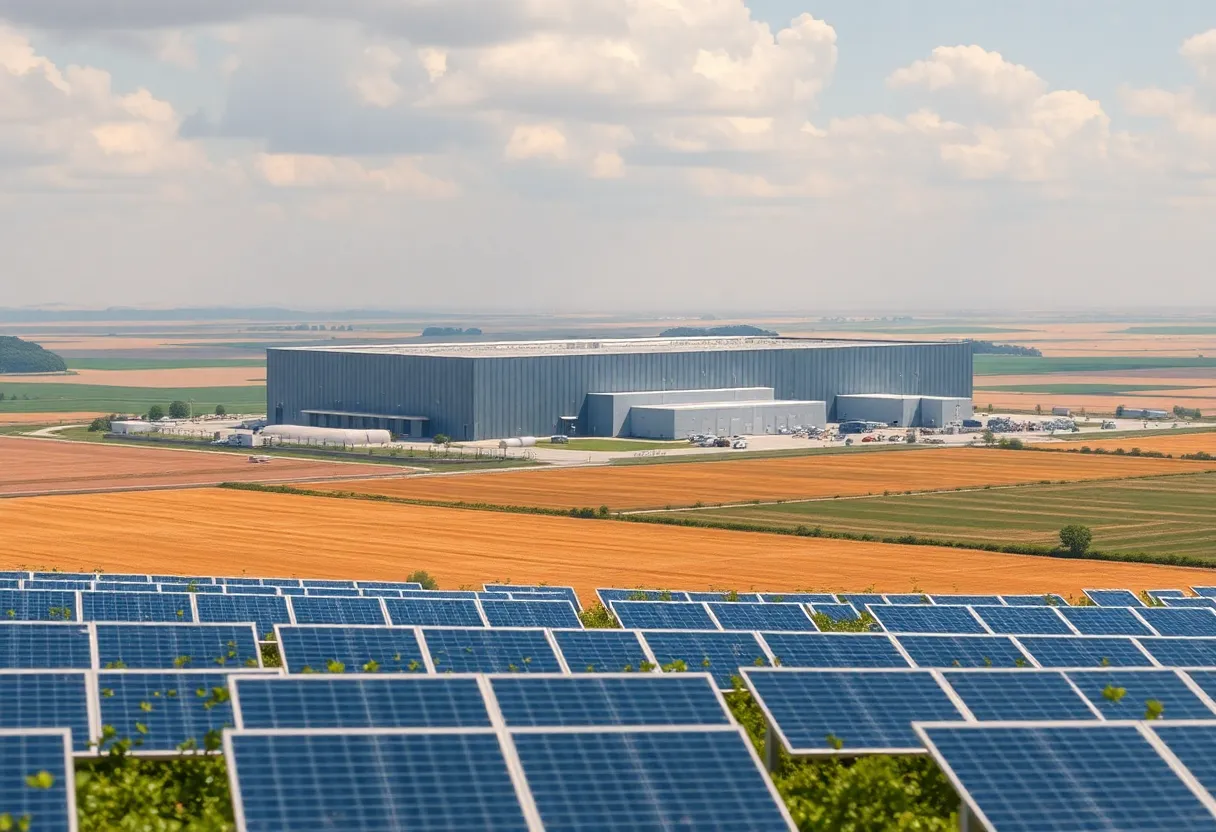News Summary
Meta, the parent company of Facebook, WhatsApp, and Instagram, has revealed plans to build its largest AI data center in Holly Ridge, Louisiana. This $10 billion investment will cover 2,250 acres and is expected to create thousands of job opportunities, boosting the local economy. However, concerns about the energy demands of the facility and its environmental impact have emerged, prompting discussions about renewable energy commitments and infrastructure challenges in the region.
Holly Ridge, Louisiana
Meta, the parent company of popular social media platforms Facebook, WhatsApp, and Instagram, has announced the construction of its largest artificial intelligence (AI) data center in Holly Ridge, Louisiana. The project, representing a substantial investment of $10 billion, is poised to transform the area’s economic landscape and create thousands of job opportunities.
The new facility will encompass 2,250 acres of land, equivalent to approximately 70 football fields, converting former agricultural land into a hub for technology and innovation. Once operational, the data center is expected to generate between 300 to 500 permanent jobs along with around 5,000 construction jobs during its peak building phases. This initiative aims to provide a significant boost to the local economy, particularly in a region characterized by high poverty rates.
Spanning four million square feet, Meta’s data center aims to enhance the company’s AI technology, striving to develop “superintelligent” systems more swiftly than its competitors, which include major players like Google and OpenAI. The urgency behind this objective is instrumental to Meta’s growth strategy within the rapidly evolving tech landscape.
Energy Demand and Controversy
Despite the potential economic benefits, the project has ignited concerns regarding its substantial energy requirements. The data center is expected to demand at least 2,600 megawatts of energy, which exceeds the peak energy load of New Orleans during summer months, raising alarms about strains on the state’s energy grid. Plans are in place for Meta to ultimately scale this energy demand to as much as 5,000 megawatts, a figure comparable to the entire energy load of Manhattan.
To address the demanding energy needs of the data center, Entergy Louisiana has proposed an investment exceeding $5 billion to construct three new natural gas plants. However, this plan requires approval from the Louisiana Public Service Commission (PSC). Entergy has submitted the necessary documents for the proposal, though they have faced criticism for being heavily redacted, leading to calls for increased transparency from community members and stakeholders.
Representatives from environmental advocacy groups have voiced strong opposition to the energy plan, worried about the implications it may have for local ecosystems and how the costs might be passed onto other electricity consumers. Additionally, commercial users express concerns about the potential strain on the electricity grid caused by the influx of a high-energy consumer in the vicinity.
Renewable Energy Commitment and Future Plans
In response to environmental concerns, Meta has pledged to invest in 1,500 megawatts of solar power linked to the data center. However, critics have pointed out that this commitment is not binding, leading to further questions about the company’s sustainability efforts.
The PSC is projected to approve Entergy’s energy plan by the fall, with indications suggesting that at least two commissioners are supportive of the project. Meanwhile, preliminary construction activities have commenced, including a new substation designed to support the energy demands of the data center, which did not previously require stringent regulatory approvals.
If all progresses as planned, the data center is anticipated to be operational by 2030. However, ongoing discussions about energy consumption and grid reliability highlight the community’s apprehensions surrounding the introduction of such a significant energy-consuming facility in a region already grappling with economic and infrastructural challenges.
Conclusion
The establishment of Meta’s AI data center in Holly Ridge is positioned as a transformative endeavor for the local economy, yet it raises critical questions about energy demands, environmental implications, and the overall sustainability of such a large-scale project. The coming months will be essential in determining both the project’s viability and its impact on the Louisiana community in the long run.
Deeper Dive: News & Info About This Topic
- NOLA: Louisiana Meta Data Centers
- Wikipedia: Artificial Intelligence
- CNBC: Meta’s Massive Data Center
- Google Search: AI data centers
- TechCrunch: Meta’s AI Data Center Plans
- Encyclopedia Britannica: Data Center
- Fast Company: Meta’s AI Data Centers
- Google News: Meta data centers

Author: STAFF HERE NEWORLEANS WRITER
The NEW ORLEANS STAFF WRITER represents the experienced team at HERENewOrleans.com, your go-to source for actionable local news and information in New Orleans, Orleans Parish, and beyond. Specializing in "news you can use," we cover essential topics like product reviews for personal and business needs, local business directories, politics, real estate trends, neighborhood insights, and state news affecting the area—with deep expertise drawn from years of dedicated reporting and strong community input, including local press releases and business updates. We deliver top reporting on high-value events such as French Quarter Festival, New Orleans Jazz & Heritage Festival, and Essence Music Festival. Our coverage extends to key organizations like the New Orleans Chamber of Commerce and Greater New Orleans, Inc., plus leading businesses in energy, healthcare, and education that power the local economy such as Entergy, Ochsner Health, and Tulane University. As part of the broader HERE network, including HEREShreveport.com, we provide comprehensive, credible insights into Louisiana's dynamic landscape.

